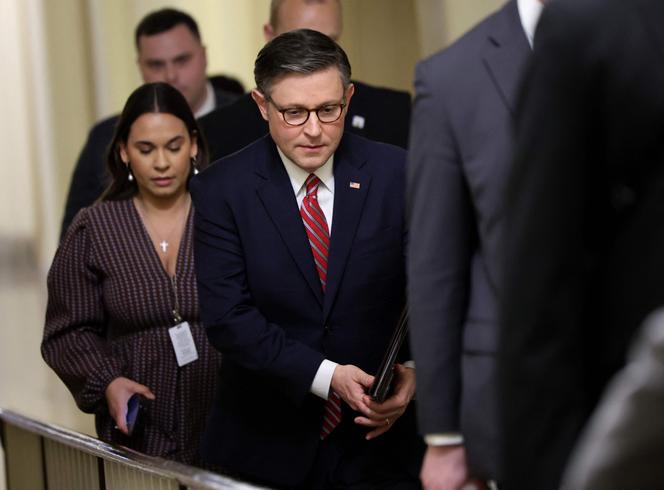


The US House of Representatives approved a $1.2 trillion package of spending bills on Friday, March 22, just a few hours before funding for some key federal agencies is set to expire, a long overdue action nearly six months into the budget year that will push any threats of a government shutdown to the fall.
The bill passed by a vote of 286-134 and now moves to the Senate, where leadership hopes for a final vote later Friday. More than 70% of the money would go to defense.
Speaker Mike Johnson brought the bill up under a streamlined process that required two-thirds support for approval.
Lawmakers could still miss the midnight deadline for funding the government as action in the Senate could take time. But the practical impact in the near term would be minimal. With most federal workers off duty over the weekend and many government services funded through earlier legislation, a shutdown would mostly pass without incident unless matters dragged into Monday.
Johnson broke up this fiscal year's spending bills into two parts as House Republicans revolted against what has become an annual practice of asking them to vote for one massive, complex bill with little time to review it or face a shutdown. Johnson viewed that as a breakthrough. Still, most of the opposition Friday came from Republicans, who viewed the bill as containing too few of their policy priorities and as spending too much.
"The bottom line is that this is a complete and utter surrender," said Representative Eric Burlison, who called himself "a hell no on this bill." The opponents particularly took issue with fellow Republicans voting for the bill and the actions of House GOP leadership. Representative Andy Ogles, went so far as to say, "It's clear that the Democrats own the speaker's gavel."
"We told the people we were going to have a smaller government, and we told the people we were going to secure the border," said Representative Warren Davidson. "It's a sad day."
It's taken lawmakers six months into the current fiscal year to get near the finish line, the process slowed by conservatives who pushed for more policy mandates and steeper spending cuts than a Democratic-led Senate or White House would consider. The impasse required several short-term, stopgap spending bills to keep agencies funded as negotiations continued.
"It is ironic that the group that has made compromise the most difficult over the last year continues to oppose compromise," said Representative Steny Hoyer, during a floor debate on the bill. "Legislative action is about compromise."
The first package of full-year spending bills, which funded the departments of Veterans Affairs, Agriculture and the Interior, among others, cleared Congress two weeks ago with just hours to spare before funding expired for those agencies. Now, lawmakers are considering the second package under a similar scenario. The 1,012-page bill also funds the departments of Homeland Security, Health and Human Services, Labor and others.
Nondefense spending will be relatively flat compared with the prior year, though some, such as the Environmental Protection Agency, are taking a hit, and many agencies will not see their budgets keep up with inflation. When combining the two packages, discretionary spending for the budget year will come to about $1.66 trillion. That does not include programs such as Social Security and Medicare, or financing the country's rising debt.
House Republicans were able to secure a provision that prohibits funding through March 2025 for the UN Relief and Works Agency, which is the main supplier of food, water and shelter to civilians in Gaza. Republicans are insisting on cutting off funding to the agency after Israel alleged that a dozen employees of the agency were involved in the attack Hamas conducted in Israel on October 7.
But the prohibition does concern some lawmakers because many relief agencies say there is no way to replace its ability to deliver the humanitarian assistance that the United States and others are trying to send to Gaza, where one-quarter of the 2.3 million residents are starving.
Representative Rosa DeLauro, the lead Democrat on the House Appropriations Committee, said the provision has caused some problems with Democratic members, but she also pointed out that Democrats were able to secure more humanitarian assistance overall. It will increase by about $336 million from the prior year's levels.
To win over support from Republicans, Johnson has also touted some of the spending increases secured for about 8,000 more detention beds for migrants awaiting their immigration proceedings or removal from the country. That's about a 24% increase from current levels. Also, GOP leadership highlighted more money to hire about 2,000 Border Patrol agents.
Democrats, meanwhile, are boasting of a $1 billion increase for Head Start programs and new childcare centers for military families. They also played up a $120 million increase in funding for cancer research and a $100 million increase for Alzheimer's research. "We defeated outlandish cuts that would have been a gut punch for American families and our economy," said Senator Patty Murray, D-Wash.
